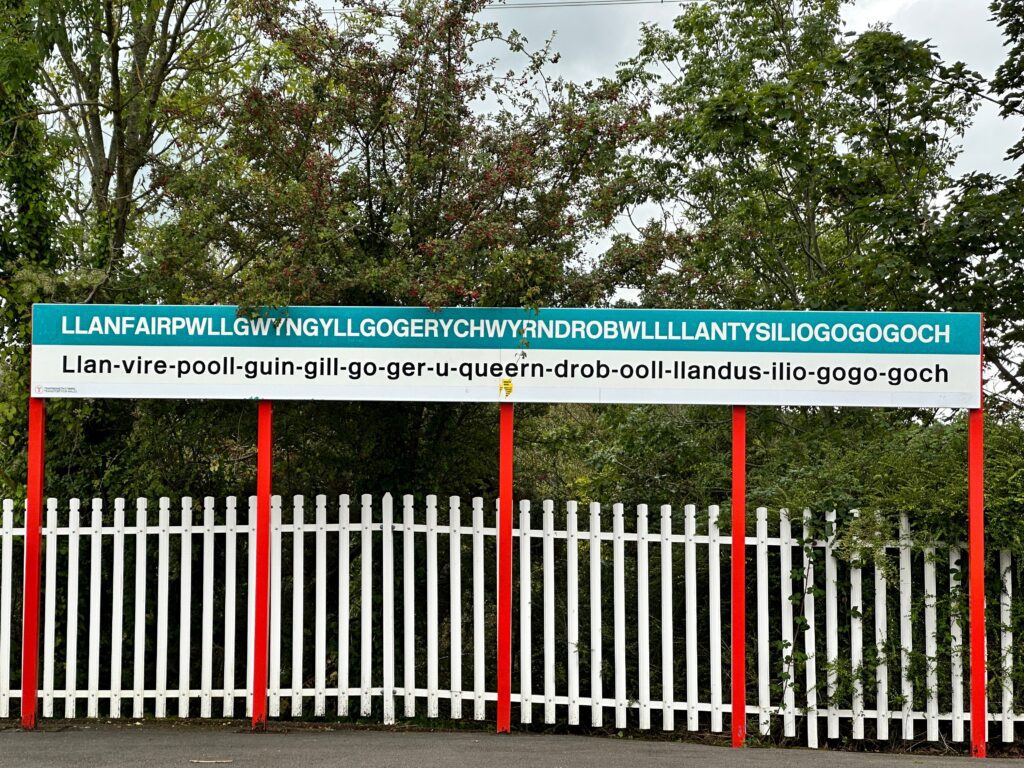From Welsh tongue-twisters to Scottish surprises, these British places leave visitors scratching their heads
English spelling can be baffling enough, but when it comes to UK town names, pronunciation really takes the biscuit. From silent letters that seem to serve no purpose to Welsh words that look like someone fell asleep on the keyboard, Britain’s place names have been catching people off guard for centuries.
Whether you’re a tourist trying not to embarrass yourself asking for directions or a newcomer attempting to fit in with the locals, getting these names wrong can lead to confused looks and polite corrections. That’s exactly why Crypto Casinos decided to investigate which UK towns and cities cause the most pronunciation panic.
The study analysed search data and YouTube viewing patterns to create a Popularity Score for difficult-to-pronounce UK locations. By combining global search volume for pronunciation queries with average YouTube views for pronunciation videos, the research identified which place names have people reaching for the internet most often to figure out how to say them properly.
Table 1: Top 10 Most Mispronounced UK Town/City Names
| Rank | Town/City Name | Correct Pronunciation (Simplified English) | ||
| 1 | Llanfairpwllgwyngyllgogerychwyrndrobwllllantysiliogogogoch | klan-vahy-pul-gwin-gill-go-ger-a-kwin-drob-ul-lan-tuh-sil-ee-o-go-go-gokh | ||
| 2 | Edinburgh | ed-in-burh | ||
| 3 | Gloucester | glos-ter | ||
| 4 | Marylebone | mar-luh-bon | ||
| 5 | Cirencester | siren-sester | ||
| 6 | Southwark | suth-uck | ||
| 7 | Llandudno | lan-did-no | ||
| 8 | Beaulieu | bew-lee | ||
| 9 | Bicester | bis-ter | ||
| 10 | Cholmondeley | chum-lee |
Wales Takes the Crown for Confusion
Unsurprisingly, Llanfairpwllgwyngyllgogerychwyrndrobwllllantysiliogogogoch claims the top spot with a perfect score of 100.00. This Welsh village name, famous for being the longest place name in Europe, has 58 letters that would make even seasoned linguists break into a sweat. The name actually translates to “St Mary’s Church in the Hollow of the White Hazel Near to the Fierce Whirlpool of St Tysilio of the Red Cave,” which explains why locals often just call it “Llanfairpwll” or “Llanfairpg.”
Scotland’s Capital Causes Surprises
Edinburgh secures second place with a score of 96.13, proving that even major capitals can trip people up. The Scottish pronunciation “ed-in-burh” catches many visitors off guard who expect it to sound like “Edin-burg.” The silent ‘gh’ and the way Scots compress the middle syllable makes this a regular source of tourist embarrassment.
English Towns That Defy Logic
Gloucester rounds out the top three with 94.97 points, demonstrating how English place names love to ignore their own spelling rules. The “cester” ending, common in Roman-founded towns, consistently confuses people who try to pronounce every letter. Similarly, Marylebone at fourth place with 89.33 points shows how London’s posh areas can humble even confident speakers – most people guess “Mary-lee-bone” when it’s actually “mar-luh-bon.”
Ancient Roots, Modern Headaches
Cirencester takes fifth place with 78.78 points, another victim of that tricky Roman “cester” suffix. The town’s name comes from the Roman “Corinium” but the modern pronunciation “siren-sester” bears little resemblance to how it looks on paper.
The data suggests that tourist-heavy destinations score higher, as international visitors frantically search for pronunciation guides before their trips. Welsh towns particularly dominate the rankings, reflecting the unique challenges of a language where ‘ll’ makes a sound that doesn’t exist in English and ‘w’ can be a vowel.
Why Getting It Right Matters
These pronunciation challenges reveal how Britain’s place names preserve centuries of linguistic history, from Welsh valleys to Roman settlements. The dominance of tourist hotspots like Edinburgh and Marylebone in the rankings shows millions of visitors are genuinely trying to get these names right.
Getting pronunciation correct matters beyond avoiding embarrassment as it shows respect for local heritage and the communities that call these places home. Plus, locals always appreciate visitors who’ve made the effort, and you’ll get much friendlier directions as a result.


